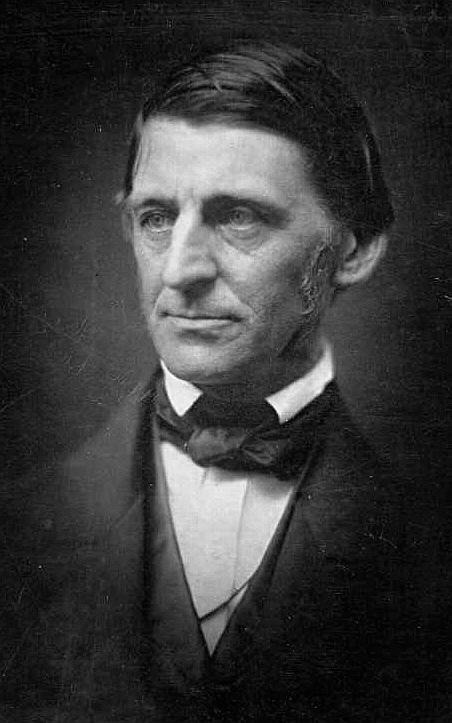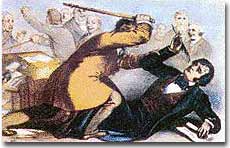Ralph Waldo Emerson
The American Renaissance brought a large change to the art culture in America. Transcendentalism widely spread and became very popular. A well known transcendentalist author was Ralph Waldo Emerson. He lead the way for many other transcendentalist to come. Emerson wrote "Nature" in 1836. His essay talked about his non-traditional appreciation of nature. This was a foundation for transcendentalism in it self. The essay suggests that life can be understood by studying nature. This was a large change from the way Americans thought in believing the only divine thing would be God. Emerson's main point throughout his essay was that humans did not fully capture natures duty. He proceeds to tell people that everyone is so consumed in their life's, that no one can truly take the time and admire nature. While the title is a tad bit cliche, Emerson's essay truly started the transcendentalist area of literature.Friday, December 12, 2014
Monday, December 8, 2014
A Civil Cause to the Civil War
The cause to the civil war is still argued over to this day. Some people believe certain events lead to it while others believes books or writings lead to it. While there will never be a definite answer, there is one that is the most likely. Popular Sovereignty lead to the Kansas-Nebraska act, lead to Bleeding Kansas; all of these events lead up to the beginning of the civil war.Popular Sovereignty is the political party that permitted the residents of federal territories to decide on whether to enter the union as a free or slave state. It was used in the Kansas-Nebraska when the Nebraska territory was divided into Kansas and Nebraska. The residents of each state were allowed to vote on whether to allow slavery or not, according to popular sovereignty. Kansas attracted two different time of people to their land; farmers looking for land and settlers with political motives. These two groups of people each wanted to outnumber the other for control of the government which would soon lead to disaster.
In Kansas two governments were soon set up. Lecompton was the pro slavery capital. It was created by pro slavery settlers with the help of people who came across the border from Missouri. The people from across the border not only convinced many people to vote pro slavery but illegally voted as well. The anti slavery government was located in Topeka. It was created by antislavery settlers with the help of The New England Emigrant Aid Society. With both of these governments set up near to each other their was bound to be conflict.
May 21, 1856 the violence that was known to come between the two governments happened. Pro slavery people raided the antislavery town of Lawrence which was in between Lecompton and Topeka. The violence in Lawernce was a shock to many people but both sides raised their armor and began to fight. Throughout the rest of 1856 there were many violent outbreaks in the areas around Lawernce. The many battles were soon known as Bleeding Kansas. Throughout all of the mess Bleeding Kansas had caused the United States government knew that popular sovereignty was not going to be a solution to the slavery issue. However, violent battles over slavery were not only happening in Kansas.
In the Congress violent was not only limited to words but physical violence as well. Some members came to work armed with pistols. A short time after the first violent outbreak of Kansas, Charles Sumner delivered a speech known as the "The Crime Against Kansas ". In his speech he talked about the lying and fraud in the Kansas elections. He insults many people, including Andrew Bulter, who was absent at the time. A few days later Butlers nephew, Preston Brooks, attacked Sumner in the senate by beating him unconscious with a cane. This made the north and south divide grow even deeper and truly separated them.
There was not one event rather a series of events that led to the segregation of the north and south. These order of events led up too the first shots of Fort Sumner being fired in April in 1861. This was the beginning of the civil war. The civil war was a turning point in Americas history and forever changed our way of life.
Subscribe to:
Posts (Atom)


